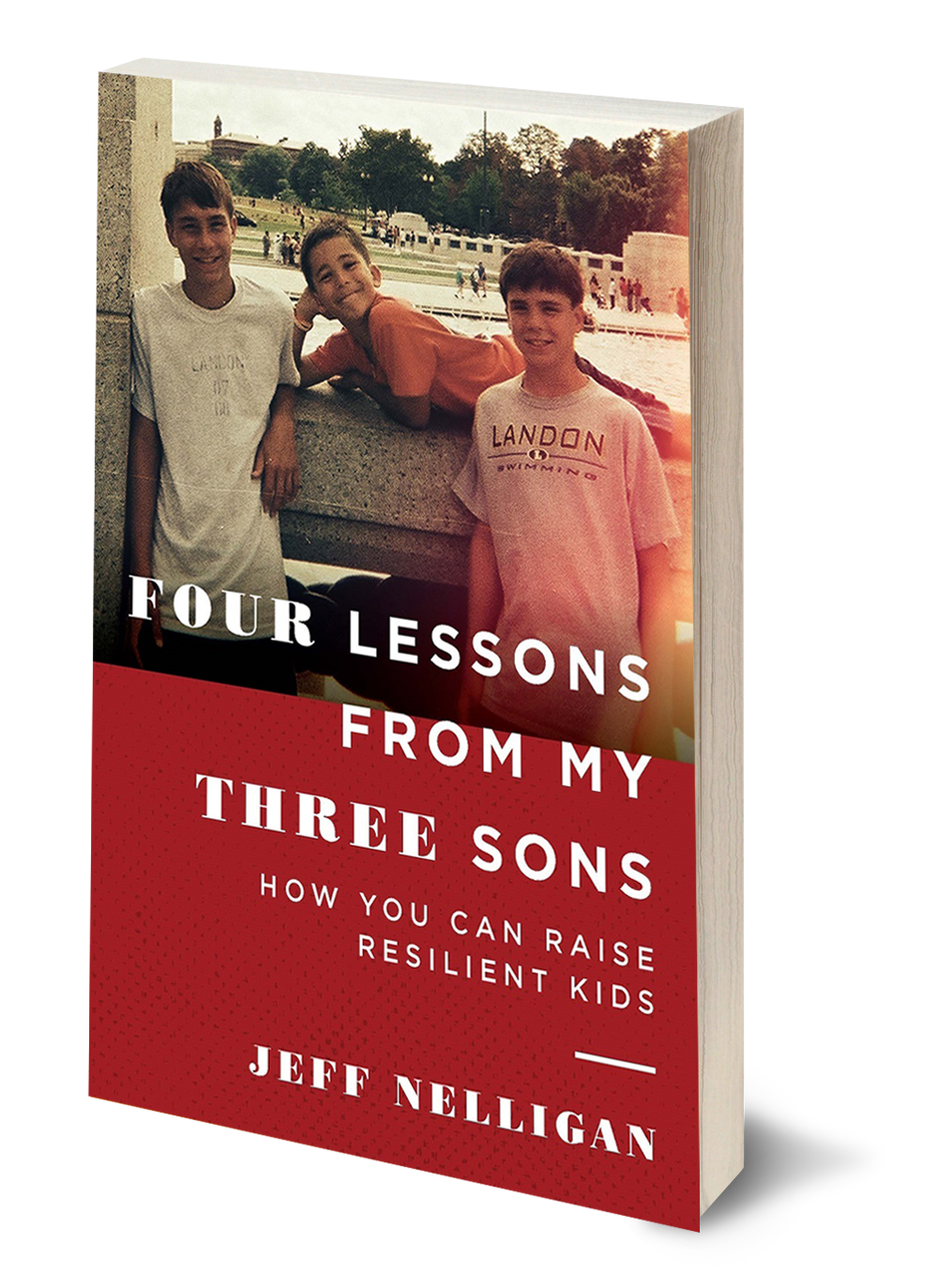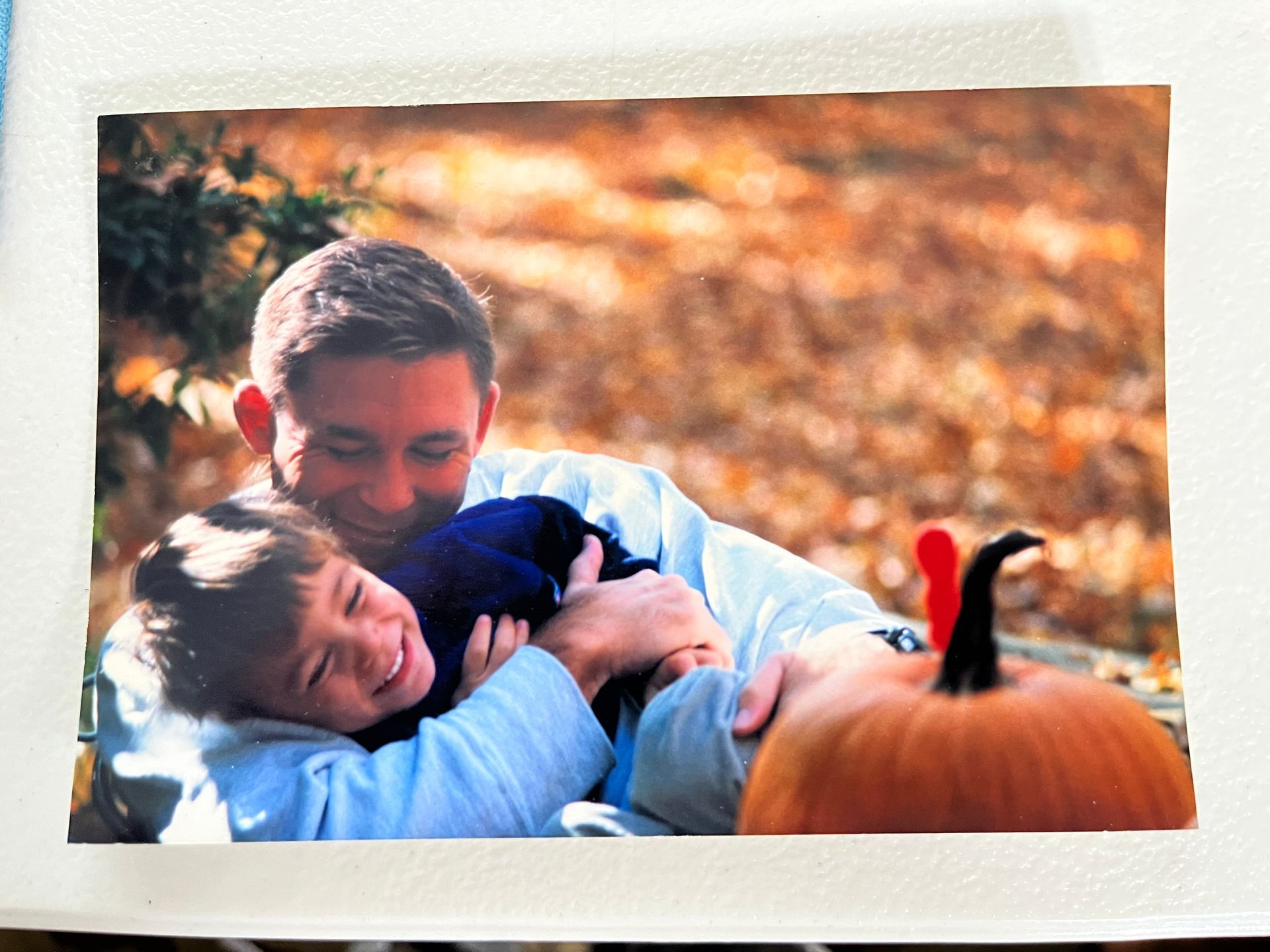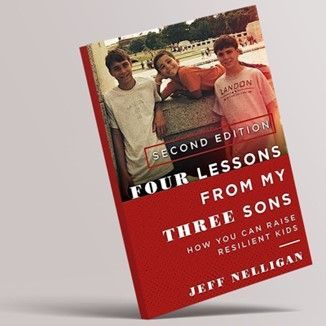5 Tips for Millennials Who Want to Raise Engaged and Resilient Kids
Jeff Nelligan • January 16, 2020
Up front: It’s become a lazy and inaccurate trope to malign Millennials. Because the fact is, they are one of the most powerful forces in American society today. At 79 million, they are the largest generational cohort in America. They’re also the most educated age group; 39 percent have at least a bachelor’s degree and earn more, with a median adjusted household income of $85,800, than young adult households did at nearly any time in the last half century.
Most important, this now ascendant generation is raising families. Today, there are more than 38 million babies born of Millennial parents.
And with that Millennials are heading up families that comprise nearly one-third of the U.S. population, here are some age-old tips that can help them raise engaged and resilient kids. (Full disclosure: I’m the father of two Millennials who have made their way through the U.S. Naval Academy and Williams College and beyond).
1. Character always counts.
Every adult knows this: Upright conduct requires no talent and no skill whatsoever. There’s no intellect necessary in looking into someone’s eye when you speak with them. There’s no skill required in shaking hands with an adult and saying Mr., Mrs., or Ms. It’s not difficult to wear modest, presentable clothing, to comb your hair or tuck in your shirt, and refrain from obscenities. Hey, how hard is the simple act of being a pleasant to an individual? These are the easiest tasks there are – and parents should find it easy to insist on this behavior.
2. The dangers of the glowing rectangle.
Millennials span the lifespan of the digital age, from the formation of the now-behemoth Amazon in 1998 to the first IPhone in 2009. They know how ubiquitous – and harmful - screen saturation can become. Whether it is violent video games, frenetic social media, or zombie-like streaming, the kids of Millennials are in danger of being hooked. The wise parent limits screen time and enhances Dad and Mom time.
3. The value of public judging.
There is nothing better for the self-worth of a kid than being on a stage, a field, or in the spotlight. That’s because when a kid is in the arena, they can’t run - and they must rely on personality, talent, and confidence. I used to tell my boys every time they suited up for a game: “Guys, this is as good as it gets. Just think - half the people in the stands today will be screaming at you to fail. Show them up and prove them wrong.” A kid who can perform in the moment when the heat is on becomes a stronger individual for life.
4. Have your kid take charge.
Explain to your kid that a safe, objective point of view in any situation is to assume that everyone around them has little or no idea of what they are doing. Clarify that it’s not wise to make assumptions about the actions or understanding of others. Kids need to be taught these reflexes: If a situation is getting sketchy, you are the first kid to pull out of it. If you are driving, don’t assume the person getting ready to pull out sees you or is even paying attention. Never go with, "I think they understood what I was saying" - ensure sure they understand. Initiative is vital. Telling your kid to take charge of his or her environment means other won’t do it for them.
5. Adversity is priceless.
No kid – and no adult – gets a free pass in life. Even a courteous, confident kid is going to have ordeals and disasters. My sons suffered through all of the trials that your kids will encounter: Wrestling with friendships and peer pressure; struggles with academics; getting beaten like a drum by opponents in games; and, personal disappointments they never shared with me, but which I knew existed. Failure is bound to occur at some point and occur again. The key is to absorb the distress and instinctively find a way forward.
Hence, persuade your kid that the best way of avoiding sagas, or at least prevent them from spinning out of control, is to approach daily life with preparation and poise. Strive to have them react to any setback, large or small, with as much calm as they can muster and keep the big hit in perspective. Most important, teach them to them to move out forthrightly: assess clearly the problem, adapt to the changed circumstances, and then drive forward. Adversity teaches a kid more about life than success ever will.
Parenting is timeless and requires strength and discipline. These five tips can help Millennials raise the newest generations of Americans, kids who will learn to strive and endure and succeed.
ABOUT THE BOOK
Every Dad in America wants to raise a resilient kid.
Four Lessons from My Three Sons charts the course.
Written by a good-natured but unyielding father, this slim volume describes how his off-beat and yet powerful forms of encouragement helped his sons obtain the assurance, strength and integrity needed to achieve personal success and satisfaction. This book isn't 300 pages of pop child psychology or a fatherhood "journey" filled with jargon and equivocation. It's tough and hard and fast. It’s about how three boys made their way to the U.S. Naval Academy, Williams, and West Point – and beyond.

It's 8:30 a.m. on a humid August Tuesday and I’m on the roof of the U.S. Capitol, the Dome rising 280 feet directly above. In my arms is a stack of thin boxes and I’m navigating a plywood gangplank leading to a rusted 15-foot flagpole. A colleague joins me carrying more boxes. She opens one and hands me a 2’ by 4’ American flag which I affix to the pole’s lanyard, raise and lower quickly, unfasten and hand to her as she hands me another. A third colleague brings out more boxes and retrieves the ones containing flown flags. This little dance continues for three straight hours. Afterwards, my colleagues and I carefully re-fold each flag and affix to it a “Certificate of Authenticity from the Architect of the Capitol” reading “This flag was flown over the U.S. Capitol in honor of____” and fill in the blank: “The Greater Bakersfield, California Chamber of Commerce”…the 80 th birthday of Wilbert Robinson of Bowie, Maryland, proud veteran of the Vietnam War…” We will perform this task for five days a week until Congress returns from recess. This is my very first job in Washington, D.C. and obviously, I have what it takes. *** Flag duty began my 32-year run in politics and government, which ended last week. It included four tours of duty on Capitol Hill working for three Members of Congress, two Presidential appointments serving Cabinet officers in the Departments of State and Health and Human Services, posts at two independent agencies, and a career position at FDA. The jobs were a mix of purely political positions where being on the south side of an election meant cleaning out your desk and getting good at catchy LinkedIn posts – twice that happened - and career federal government stints where the stakes were less exhilarating. *** I worked principally as press secretary and special assistant. The former job, a common D.C. occupation, was transformed in 2008 with the onset of social media, morphing from daily pronouncements of your boss’s wisdom on the issues of the day to rapid-fire postings on the obvious unreasonableness, even cruelties of your opponents. Sound familiar? As for the latter occupational specialty, special assistant, the terms ‘bagman’ or ‘fixer’ are more apt: A guy always two steps behind the principal but always ready to step up and fix whatever problem arose in daily political life. Need a special vegan lunch for Congressman Busybody, White House tour tickets for the Big Bad High volleyball team, or the personal phone number of the executive assistant to a heavy-duty lobbyist? I was your guy. Every leader needs a fixer. Like anyone else who works in D.C., I occasionally participated in a glam political moment – you know, that unique, epic event that would never ever be forgotten in D.C. history Until it was. *** The best part about government life was working for many men and women who were at the top of their game in the D.C. Swamp, one of the toughest arenas on the planet. Their success, from the vantage point of your humble correspondent, was attributable to four simple rules of life. “If you can’t measure it, it didn’t happen.” Every office I was in kept metrics on virtually every aspect of the principal’s week – how many meetings and events attended, X posts, interviews, committee votes, constituent letters, action items completed from memos?! Numbers, numbers, and always keeping score – and always the quest to improve. “Never lose it.” In a lifetime of political jobs, I may have heard a boss raise her or his voice half a dozen times, even during and after major-league setbacks. Self-control was their hallmark. One boss, a powerful House Committee chairman once confided to me, “I’m fine that 80 precent of my job is humoring these guys, no matter how crazy they get.” An equally valuable corollary skill: Humility. The ability of these individuals to admit to colleagues and staff when wrong on a particular issue. Which counterintuitively only upped their long-term credibility. “Something’s always gonna go south.” Always the need for a plan C. Every initiative during an upcoming day was scoured for what elements would interfere and how, if they occurred, they could be ameliorated. Hence, in the rare times when things did go south, there was always preparation in advance for getting to 80 percent of what was needed. “Good is not good enough.” Successful politicians and government leaders – and their staffs – never get complacent. If they do, they’re not long for the Swamp. Everyone is always hustling for the edge. A useful corollary learned from an NCO when I was in the Army: Always have your hand up. Volunteering is at the heart of the hustle, the cheerful willingness to take on the new and unknown and do whatever it takes. *** And that’s how it all started. On the second day of my first congressional tour the Member solicited volunteers “for a fun recess job that’ll get you out of the office.” It was flag duty and from that day onwards my government career could only go up. *****










